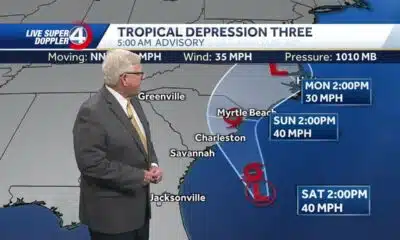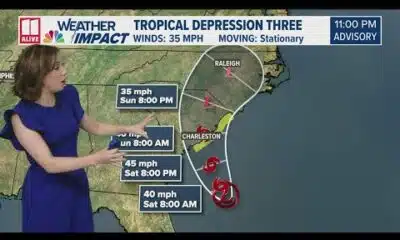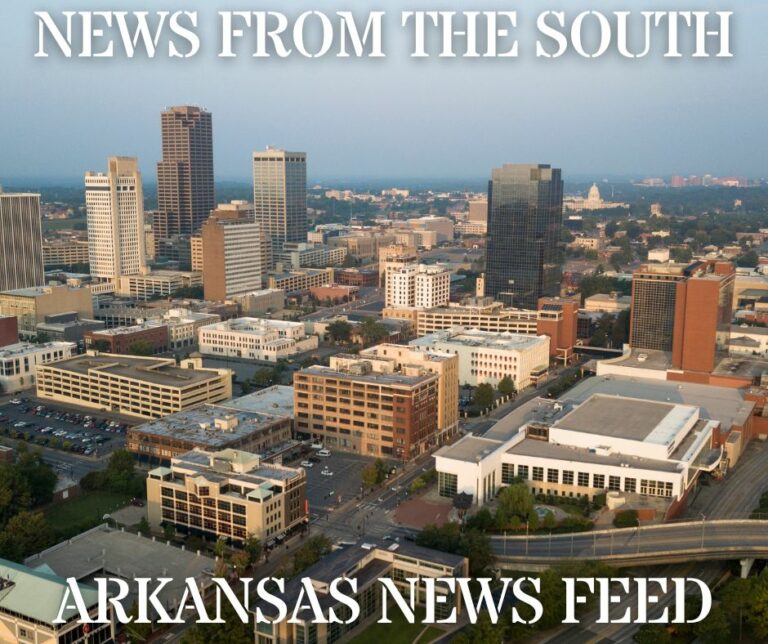News from the South - North Carolina News Feed
Lesson learned: How the pandemic provided a teachable moment for NC lawmakers in latest Helene relief bill
There’s going to be a full house in Ashe County’s public schools this summer. After a mix of bad weather and severe storms closed schools there for 47 days, Superintendent Eisa Cox plans to take full advantage of a Helene learning loss summer school program. It’s funded by the legislature in its most recent recovery bill.
The $9 million School Extension Learning Recovery Program is open to schools in 13 impacted Western North Carolina counties: Ashe, Avery, Buncombe, Burke, Haywood, Henderson, Madison, McDowell, Mitchell, Rutherford, Transylvania, Watauga and Yancey.
It covers grades 4 through 8 and focuses on intensive recovery in math and reading. Each participating school will receive at least $20,000 for the program and possibly double that, depending on how much state money is left over after all schools get initial funding.
While one of the lower-dollar items in the $524 million recovery package, the summer school program could mean a lot for Ashe County students. The school system already uses grant funding to run summer programs for various grades. Still, without state funds, having a “robust” learning loss program serving multiple grades in different schools would have been impossible, Cox said.
“That’s a hefty price in order to be able to do that for kids,” she said. “You’re talking about feeding them, transportation, the cost of the teacher over the summer, and, of course, you don’t want to put 30 kids in a class. That’s not going to achieve what you want for students who are already struggling to be on grade level.”
Helene learning loss overlooked — at first
While Gov. Josh Stein’s Helene recovery request included a summer learning loss program, the first version of the General Assembly’s Helene recovery bill didn’t offer a penny for public schools.
State Rep. Marcia Morey, D-Durham, took note. She recalled a retreat where she spoke with public school leaders from Western North Carolina who told her how “dire” the need was to get back in the classroom. Four years out, students were still recovering from pandemic learning loss. Helene only exacerbated the issue.
“We have eight counties. We have at least four schools (where) kids couldn’t go back — they had to go to other facilities,” she said in February on the House floor. “We have two schools totally decimated. And so we’re not doing it today, but our public school kids need a place to go. They need a facility. I hope in the next bill we will address the children out west in these affected counties.”
Morey tried to file an amendment to the legislature’s initial bill, but was told she was too late.
The next version of the bill included a $9 million summer learning program.
Morey said she wasn’t directly involved.
“I think they just knew they had to respond to it,” she told Carolina Public Press. “It was astounding that nothing was included in the first relief bill.”
Lessons from the pandemic
Not all missed school days are created equal. Losing one day could take a few hours, a day or a week to recover, depending on the grade level and subject matter.
For example, earlier grades typically learn a “mile wide” and an “inch deep,” covering a broader range of subjects than later grades, which tend to focus on one or two concepts, explained Jeni Corn, the impact evaluation and strategy director for the North Carolina Collaboratory.
This can make it harder for younger students to make up for lost time. Additionally, math concepts typically take longer to recover than those involving social studies.
The legislature first partnered with the North Carolina Collaboratory, housed at UNC-Chapel Hill, to research the impacts of the pandemic on K-12 education. Among the various studies was one looking at the effect of a state-funded summer school program designed to address pandemic learning loss.

That study now forms the basis of the Helene summer school program, Corn said.
Researchers found that higher summer school attendance correlated with better attendance the following academic year for students in grades 4 through 8 and seventh and eighth graders. They also discovered modest gains in math test scores among students who had high summer attendance, but no impact on reading scores.
Summer school programs can’t cure all learning loss, but they can improve student engagement through continued connection with their fellow peers and teachers, the researchers concluded.
Cox, the Ashe County superintendent, came to the same determination. A dozen days of summer school is never going to be enough time to recover from weeks of learning loss, but it can still help.
“When kids aren’t in school, they may not have a meal,” Cox said. “When kids are not in school, they may not have an adult around them during most of the day that can help them provide the structure to be able to read to them, to be able to provide them with direction.”
This article first appeared on Carolina Public Press and is republished here under a Creative Commons Attribution-NoDerivatives 4.0 International License.
The post Lesson learned: How the pandemic provided a teachable moment for NC lawmakers in latest Helene relief bill appeared first on carolinapublicpress.org
Note: The following A.I. based commentary is not part of the original article, reproduced above, but is offered in the hopes that it will promote greater media literacy and critical thinking, by making any potential bias more visible to the reader –Staff Editor.
Political Bias Rating: Center-Left
The content presents information regarding a summer learning program in Western North Carolina aimed at addressing the educational impact of the pandemic, specifically referring to "Helene learning loss." The mention of lawmakers and educators collaborating to implement a state-supported program suggests a mildly progressive viewpoint, as it emphasizes government involvement in addressing educational challenges. Additionally, the sourcing from Carolina Public Press, described as an "independent newsroom" committed to uncovering overlooked issues, aligns with narratives often found in Center-Left media that advocate for social responsibility and public welfare initiatives. Overall, while the content is informative and not overtly biased, the context indicates a leaning towards Center-Left perspectives related to governance and education policy.
News from the South - North Carolina News Feed
Red flags when you're buying or selling a used car
SUMMARY: Buying or selling a used car this summer requires caution due to prevalent scams. July is peak season for used car transactions, attracting scammers targeting both buyers and sellers. John Matarice highlights how easy it is to fall for fake check scams, like Matt Nef, who tried selling a 1948 Packard and received a counterfeit check exceeding his asking price, with requests to send money to a shipping company. Similarly, buyer Dejon Wallace nearly lost $1,200 on a fake check from a seller on Facebook Marketplace. To avoid fraud, always meet in person, never cash checks and send money back, and avoid wiring funds to strangers.
July is typically peak season for buying and selling used cars. Anyone in the market for one or trying to sell their own should be wary of scams.
News from the South - North Carolina News Feed
What to expect traveling for July 4: roads, weather, air travel
SUMMARY: Many Americans are traveling extensively this July 4th, with airports and roads packed for the holiday weekend. However, severe weather is causing significant disruptions. In Texas, heavy rainfall triggered flash floods near Kerrville, leading to evacuations and multiple deaths. The Northeast also faces storms, resulting in over 100,000 power outages across New York, Pennsylvania, New Jersey, and Massachusetts. New Jersey reported at least three storm-related deaths. Despite weather challenges, air travel is expected to hit a record with nearly 6 million domestic passengers, while over 61 million are predicted to travel by car. Gas prices are at their lowest July 4th average since 2021.
While the airports and roads have been packed, severe weather has also been causing major problems. ABC’s Olivia Rubin has more.
More:
Download: https://abc11.com/apps/
Like us on Facebook: https://www.facebook.com/ABC11/
Instagram: https://www.instagram.com/abc11_wtvd/
Threads: https://www.threads.net/@abc11_wtvd
TIKTOK: https://www.tiktok.com/@abc11_eyewitnessnews
News from the South - North Carolina News Feed
A July 4th “must read”: The Declaration of Independence
SUMMARY: On July 4, 1776, thirteen American colonies declared independence from British rule, citing King George III’s repeated abuses and denial of rights. The Declaration of Independence asserts that all men are created equal, endowed with unalienable rights to life, liberty, and the pursuit of happiness. Governments derive legitimacy from the consent of the governed and must be altered or abolished if destructive to these rights. After numerous grievances—such as unlawful laws, taxation without consent, military oppression, and judicial manipulation—the colonies declared themselves free and independent states, pledging mutual support for their new nation’s liberty and security.
The post A July 4th “must read”: The Declaration of Independence appeared first on ncnewsline.com
-
The Center Square6 days ago
U.S. Senate prepares for passage of One Big Beautiful Bill Act | National
-
News from the South - Louisiana News Feed6 days ago
Water company hiked sewage rates in Lafayette to state’s highest
-
News from the South - Tennessee News Feed6 days ago
“Choose how you love:” Nashville Pride 2025
-
Mississippi Today5 days ago
Feds unfreeze $137 million in Mississippi education money
-
News from the South - Virginia News Feed7 days ago
Senate Republicans work through the weekend to pass Trump’s One Big Beautiful Bill
-
News from the South - Arkansas News Feed6 days ago
Thousands celebrate pride, progress at the 2025 NWA Pride Parade
-
News from the South - Arkansas News Feed6 days ago
Congress unlikely to enact ‘absolutely devastating’ Trump proposal to slash Pell Grants
-
Local News6 days ago
Mississippi airports working to complete projects





































